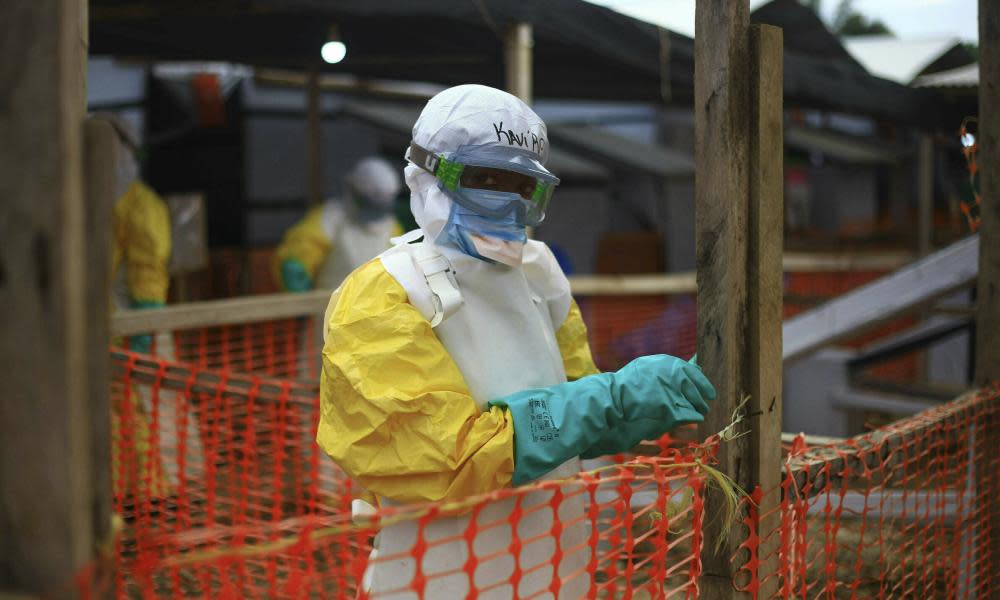Alarm over cases of disease with Ebola-like symptoms in Tanzania

Several unexplained cases of a disease with Ebola-like symptoms in Tanzania have prompted an extraordinary statement from the World Health Organization questioning the response of the country’s health authorities.
WHO warned that lack of information over the cases, including clinical data, possible contacts and potential laboratory tests performed for differential diagnosis of the patients had not been communicated, leaving it unable to assess the potential risk.
The statement comes hard on the heels of similar remarks by the US health secretary, Alex Azar, last week amid mounting concern that Tanzania may be in breach of its international commitments to share critical data relating to global health security.
Alarm was raised earlier this month when a woman, understood to be a doctoral candidate who sources say had been doing field research in Tanzania and Uganda, fell ill and died in Dar es Salaam.
Although Tanzania has insisted that its own tests showed negative for the Ebola virus, international health organisations have raised the alarm about not being given access to samples.
According to unconfirmed reports, the woman, in her mid-30s, had been conducting health research and had visited several health facilities in central Uganda before her death, after showing symptoms of a serious febrile illness.
The patient, who died on 8 September, had not been to the Democratic Republic of the Congo or had contact with Ebola cases, leading international health monitoring organisations to initially rule out the Ebola virus.
However, as several more reported cases emerged, including the initial patient’s sister, Tanzania’s response to the issue has prompted alarm about the country’s willingness to share either its test results or allow secondary testing of samples.
Azar voiced his own criticism during a visit to Uganda, telling reporters that he and others are “very concerned” as he urged Tanzania’s government to share laboratory results regarding the case.
Under international health regulations Tanzania is obliged to cooperate with international health bodies “to protect Tanzanians as well as all people in the region”.
In its statement, issued over the weekend, the WHO made clear its frustration about the lack of information sharing.
“On 19 September 2019, through its regular event-based surveillance process, WHO was made aware of unofficial reports regarding a contact of the initially presumptive case of [Ebola disease virus] who was reported to be sick and hospitalised.
“However, to date, clinical data, results of the investigations, possible contacts and potential laboratory tests performed for differential diagnosis of those patients have not been communicated to WHO. This information is required for WHO to be able to fully assess the potential risk posed by this event.”
“We don’t know what’s going on,” one international health official told the Guardian. “We don’t know what this disease is. The symptoms in the sister of the initial patient are different to the symptoms we’ve seen in the Ebola outbreak in Congo, which could suggest it is a different strain, but we just don’t know and that is what is driving the concern.”
The Guardian understands that concern in Uganda, where the first patient visited, is elevated enough that it has initiated its own victim contact tracing.
Although Tanzania has never recorded a case of Ebola, the well-publicised challenges around the recent outbreak in DRC – which has claimed almost 2,000 lives – has prompted widespread anxiety in the region over the threat posed by Ebola and similar diseases.
Cases of Ebola patients crossing borders during this outbreak have been rare.
In June, a family of Congolese with sick family members crossed into Uganda via a bush path. Two died of Ebola inside Uganda. And in August, a nine-year-old Congolese girl tested positive for Ebola and later died in Uganda after travelling from Congo.
Commenting last week on the controversy that has surrounded the Tanzania cases, Dr Yonas Woldemariam, the WHO representative in Uganda, said: “This mysterious disease has to be investigated and samples have to be tested. We couldn’t rule out any of the viral hemorrhagic fevers and the investigation will continue.”
The row came as the WHO announced DRC will start using a second experimental Ebola vaccine.
Since this outbreak was declared in August 2018, more than 200,000 people have received doses of a vaccine made by Merck, which will continue to be used in Congo.
In a statement, WHO said the second vaccine, made by Johnson & Johnson, will be used from October in areas where Ebola is not actively spreading.
Using the second vaccine “will ensure that we have potentially an additional tool to prevent the expansion of the outbreak”, said Matshidiso Moeti, WHO’s Africa director.

 Yahoo News
Yahoo News 
